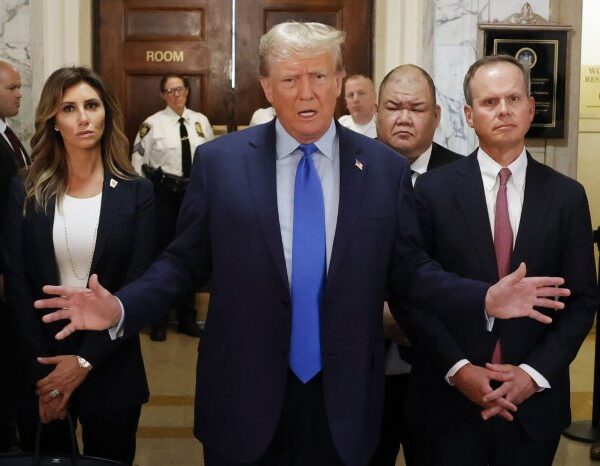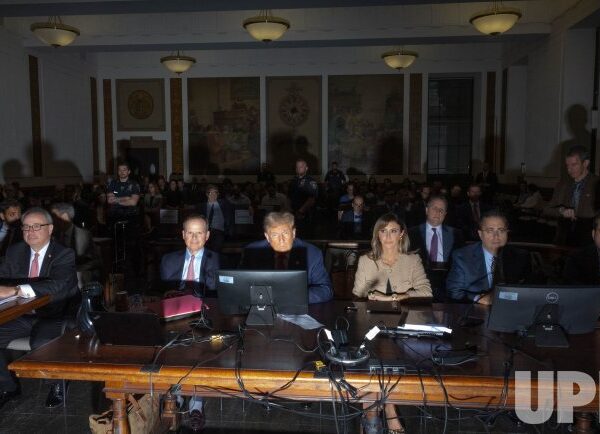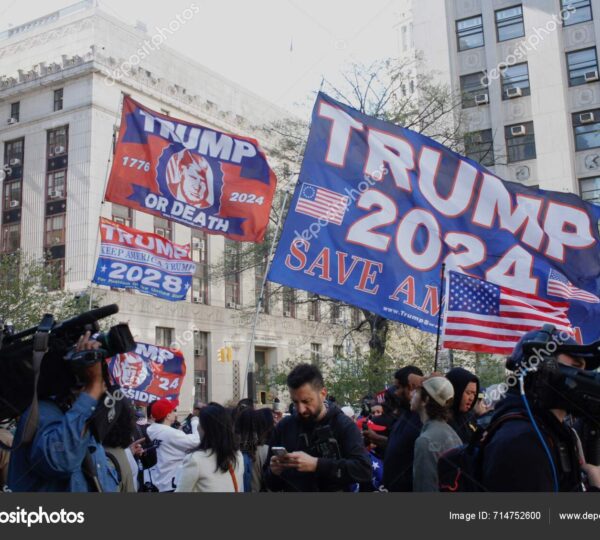The legal and political landscape in the United States shifted once again after former President Donald Trump submitted a major appeal seeking to overturn his New York conviction. His filing directly challenges Manhattan District Attorney Alvin Bragg’s high-profile case, describing it as a politically motivated prosecution rather than a fair legal process.
Trump’s legal team filed the extensive appeal earlier this week, calling the case “the most politically charged prosecution in modern American history.” The filing argues that the decisions made during the trial violated fundamental constitutional protections and relied on legal theories that experts across the political spectrum had questioned from the beginning.
The original New York case centered on 34 counts of falsifying business records, tied to payments allegedly made years before Trump became president. While the details were widely discussed in public and media, Trump’s lawyers insist the charges were constructed in a way that stretched the law beyond its intended purpose.
In the appeal, Trump’s team described Manhattan D.A. Alvin Bragg’s approach as “Radical Democrat Lawfare,” accusing the prosecutor of bending legal standards to pursue a political target. Their statement emphasized that the case should be dismissed outright based on constitutional protections and the recent Supreme Court ruling on presidential immunity.
A spokesman for Trump’s legal team told reporters that the appeal is a crucial step toward correcting what they characterized as “a dangerous precedent that threatens the integrity of the justice system.” According to them, the prosecution crossed lines that no district attorney should cross, regardless of political affiliation.
The filing cites multiple legal precedents in both federal and state law, arguing that the prosecution relied on vague theories, particularly the claim that Trump’s alleged record-keeping violations were tied to a secondary, unspecified crime.

That secondary crime was never universally defined during the case, leading many legal analysts—even some who are not Trump supporters—to question whether such a strategy respects the rights of a defendant.
The appeal also argues that the trial judge’s decisions contributed to an unfair environment. Trump’s attorneys claim the jury instructions and evidentiary rulings did not meet constitutional standards for transparency, clarity, or fairness.
Supporters of the former president believe the appeal is necessary not only for Trump personally but also for restoring confidence in a justice system they say has been politicized. They argue that selective prosecution has no place in a democratic society.
Republican lawmakers echoed this sentiment, insisting that the case against Trump was flawed from the beginning. Several pointed to the fact that nondisclosure agreements and settlements are common practices in the corporate world, emphasizing that such actions are not inherently criminal.

Meanwhile, Trump addressed the situation publicly, stating that the appeal marks an effort to “expose political weaponization” and defend the rights of all Americans. He maintained that his focus remains on broader goals, including his political agenda and ongoing campaign efforts.
Manhattan D.A. Alvin Bragg, however, has stood firmly by the original prosecution. His office maintains that the case was handled according to the law and that the charges were supported by the evidence presented in court.
Bragg’s supporters argue that no one should be above the law—not even a former president. They insist the conviction reflects accountability, not politics.
Opponents of the prosecution disagree, pointing to what they see as inconsistency in how crime is handled in Manhattan. Critics often accuse Bragg of being lenient on violent and repeat offenders, while dedicating extraordinary resources to a years-old business records case involving Trump.
The appeal further highlights comparisons with other legal actions taken against the former president in multiple states. Trump’s legal team calls these investigations part of a coordinated effort, while his opponents argue the cases are separate and based on different allegations.

This ongoing legal battle has major implications for the political climate, especially as Trump remains a prominent national figure. The outcome of the appeal could influence future cases involving public officials and clarify how far prosecutors can go when applying lesser-used legal theories.
Legal scholars across the country are now closely examining the appeal. Some have noted that the Supreme Court’s recent ruling on presidential immunity may have a significant impact, though the full effect remains to be seen.
The length of the appeal filing—reported between 96 and 111 pages depending on the source—signals the complexity of the issues at hand. Trump’s lawyers focused heavily on constitutional questions, including due process and fair trial rights.
Supporters believe the appeal has merit and could potentially reshape the case entirely. Critics argue that Trump is using legal maneuvers to delay or avoid accountability. The divide reflects the broader political polarization in the United States.
Regardless of opinion, the appeal marks the beginning of another significant chapter in Trump’s legal journey. The case will now move into the appellate process, where judges will review the claims in detail.
The decision from the appeals court will likely take months, possibly longer. During that time, the case will remain a central point in national conversation, affecting both politics and public trust in the legal system.
As with many high-profile cases involving Trump, the reactions online have been intense. Supporters view the appeal as long-overdue pushback, while critics believe the conviction should stand.
One thing remains certain: the legal fight is far from over. The outcome will shape the relationship between politics and the justice system for years to come.
For now, all eyes remain on New York as the appeals court begins its examination. Whether the conviction is overturned, modified, or upheld will determine the next major step in this unfolding legal story.
The legal and political landscape in the United States shifted once again after former President Donald Trump submitted a major appeal seeking to overturn his New York conviction. His filing directly challenges Manhattan District Attorney Alvin Bragg’s high-profile case, describing it as a politically motivated prosecution rather than a fair legal process.
Trump’s legal team filed the extensive appeal earlier this week, calling the case “the most politically charged prosecution in modern American history.” The filing argues that the decisions made during the trial violated fundamental constitutional protections and relied on legal theories that experts across the political spectrum had questioned from the beginning.
The original New York case centered on 34 counts of falsifying business records, tied to payments allegedly made years before Trump became president. While the details were widely discussed in public and media, Trump’s lawyers insist the charges were constructed in a way that stretched the law beyond its intended purpose.
In the appeal, Trump’s team described Manhattan D.A. Alvin Bragg’s approach as “Radical Democrat Lawfare,” accusing the prosecutor of bending legal standards to pursue a political target. Their statement emphasized that the case should be dismissed outright based on constitutional protections and the recent Supreme Court ruling on presidential immunity.
A spokesman for Trump’s legal team told reporters that the appeal is a crucial step toward correcting what they characterized as “a dangerous precedent that threatens the integrity of the justice system.” According to them, the prosecution crossed lines that no district attorney should cross, regardless of political affiliation.
The filing cites multiple legal precedents in both federal and state law, arguing that the prosecution relied on vague theories, particularly the claim that Trump’s alleged record-keeping violations were tied to a secondary, unspecified crime.

That secondary crime was never universally defined during the case, leading many legal analysts—even some who are not Trump supporters—to question whether such a strategy respects the rights of a defendant.
The appeal also argues that the trial judge’s decisions contributed to an unfair environment. Trump’s attorneys claim the jury instructions and evidentiary rulings did not meet constitutional standards for transparency, clarity, or fairness.
Supporters of the former president believe the appeal is necessary not only for Trump personally but also for restoring confidence in a justice system they say has been politicized. They argue that selective prosecution has no place in a democratic society.
Republican lawmakers echoed this sentiment, insisting that the case against Trump was flawed from the beginning. Several pointed to the fact that nondisclosure agreements and settlements are common practices in the corporate world, emphasizing that such actions are not inherently criminal.

Meanwhile, Trump addressed the situation publicly, stating that the appeal marks an effort to “expose political weaponization” and defend the rights of all Americans. He maintained that his focus remains on broader goals, including his political agenda and ongoing campaign efforts.
Manhattan D.A. Alvin Bragg, however, has stood firmly by the original prosecution. His office maintains that the case was handled according to the law and that the charges were supported by the evidence presented in court.
Bragg’s supporters argue that no one should be above the law—not even a former president. They insist the conviction reflects accountability, not politics.
Opponents of the prosecution disagree, pointing to what they see as inconsistency in how crime is handled in Manhattan. Critics often accuse Bragg of being lenient on violent and repeat offenders, while dedicating extraordinary resources to a years-old business records case involving Trump.
The appeal further highlights comparisons with other legal actions taken against the former president in multiple states. Trump’s legal team calls these investigations part of a coordinated effort, while his opponents argue the cases are separate and based on different allegations.

This ongoing legal battle has major implications for the political climate, especially as Trump remains a prominent national figure. The outcome of the appeal could influence future cases involving public officials and clarify how far prosecutors can go when applying lesser-used legal theories.
Legal scholars across the country are now closely examining the appeal. Some have noted that the Supreme Court’s recent ruling on presidential immunity may have a significant impact, though the full effect remains to be seen.
The length of the appeal filing—reported between 96 and 111 pages depending on the source—signals the complexity of the issues at hand. Trump’s lawyers focused heavily on constitutional questions, including due process and fair trial rights.
Supporters believe the appeal has merit and could potentially reshape the case entirely. Critics argue that Trump is using legal maneuvers to delay or avoid accountability. The divide reflects the broader political polarization in the United States.
Regardless of opinion, the appeal marks the beginning of another significant chapter in Trump’s legal journey. The case will now move into the appellate process, where judges will review the claims in detail.
The decision from the appeals court will likely take months, possibly longer. During that time, the case will remain a central point in national conversation, affecting both politics and public trust in the legal system.
As with many high-profile cases involving Trump, the reactions online have been intense. Supporters view the appeal as long-overdue pushback, while critics believe the conviction should stand.
One thing remains certain: the legal fight is far from over. The outcome will shape the relationship between politics and the justice system for years to come.
For now, all eyes remain on New York as the appeals court begins its examination. Whether the conviction is overturned, modified, or upheld will determine the next major step in this unfolding legal story.
